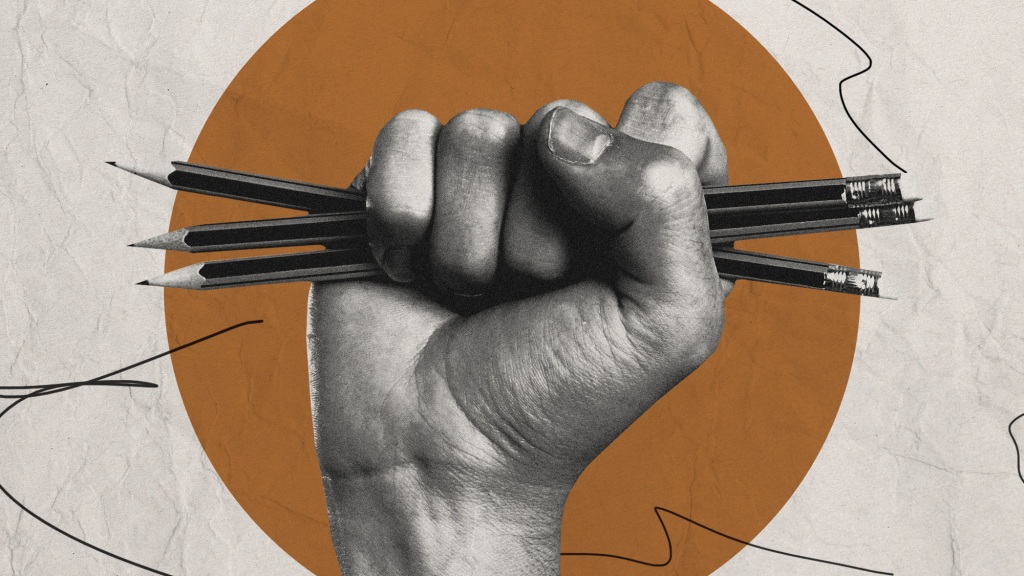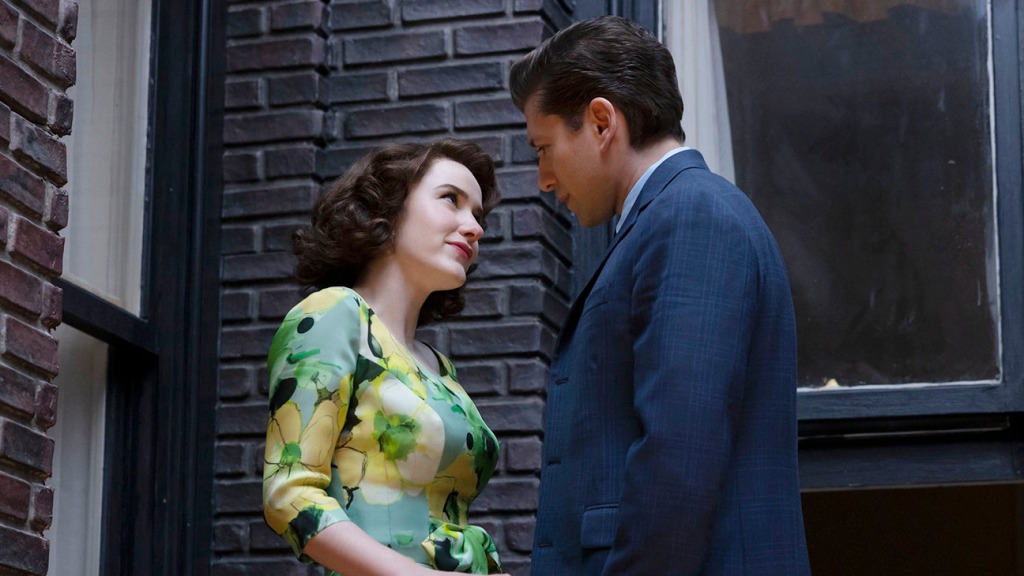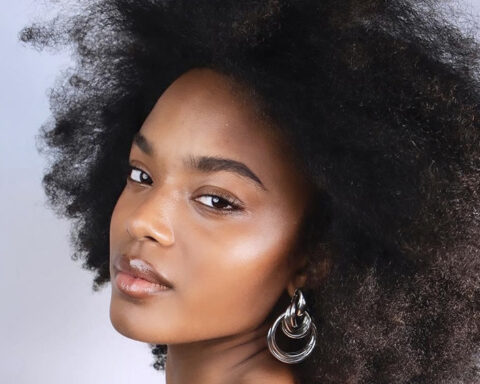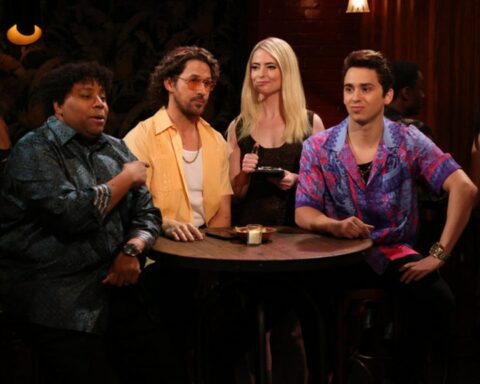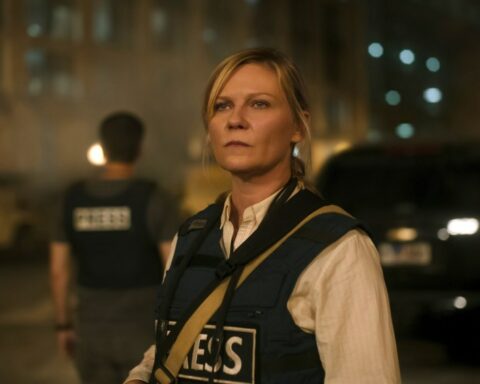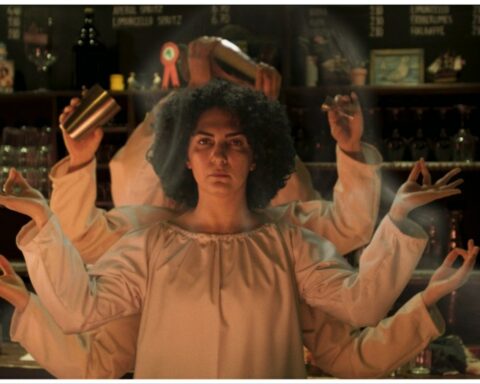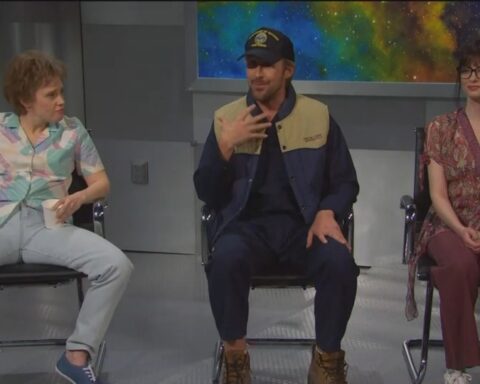[This story contains major spoilers from the sixth episode of Yellowjackets season two, “Qui.”]
Ever since Javi returned, the Yellowjackets clock has been ticking on answering the other big question from season one: What will happen to Shauna’s baby? The answer came in the sixth episode of the Showtime hit’s second season, “Qui,” which was written by Karen Joseph Adcock and Ameni Rozsa, and directed by Liz Garbus.
Garbus says she devoured the first season of Yellowjackets. So when she got the call about directing an episode of season two, she was excited. “There was no catch up necessary,” she tells The Hollywood Reporter (in an interview that took place before the May 2 writers strike). But her curiosity was piqued because the plot of the episode was being held close to the vest. “We were talking about different dates and they weren’t really revealing any information, but they were like, ‘Well, we have this one episode we’re really thinking of you for…’ So there was this level of mystery.”
Once she got the script, it became clear why the show’s creative team, which includes co-creators Ashley Lyle and Bart Nickerson and co-showrunner Jonathan Lisco, would turn to the sought-after filmmaker who has spent her career documenting social justice stories, including women’s issues.
“Qui” picks up where the prior episode left off, with Shauna (Sophie Nélisse) going into labor in the 1996 wilderness timeline. The cabin comes together for the birth, led by Misty (Samantha Hanratty) as she puts aside her shock (from instigating the death of Crystal, played by Nuha Jes Izman) and leans on lessons learned from high school health class. Meanwhile, nearly everyone else turns to Lottie (Courtney Eaton) to invoke the elusive powers of the wilderness as Shauna labors. Then, a baby boy is delivered.
But when viewers arrive to the end of the episode, they will look back and realize this was the moment that Garbus and the writers began to pull off “Qui’s” devastating magic trick. Everything that played out from there on out was a dream. In the end, the baby did not survive childbirth and Shauna, who is severely malnourished, regains consciousness to that reality in a guttural ending to the episode.
“The idea was to make Shauna feel grounded and like the audience is with her. You didn’t have any knowledge ahead of her, you’re right alongside her going through this,” says Garbus. Below, the director goes inside the pivotal episode to share behind-the-scenes details (from that Rosemary’s Baby inspiration to Nélisse’s “palpable grief” and the entire cast crying), explain why a “Lottie-level miracle” couldn’t have saved the baby and why it’s time to “demystify” childbirth in the post-Roe era, and unpack how this moment of trauma rears itself in Melanie Lynskey’s performance as adult Shauna.
“What happened to Shauna’s baby?” was a looming but tangible season one question. Eventually, there had to be an answer. That baby is coming. What drew you to helming this moment in the show?
I felt so grateful to be trusted with working with Sophie and of course Melanie and everyone else, but especially with Sophie with such a heavy lift. She’s such a wonderful, collaborative actor that it turned out to be really, really rich. I loved being able to do that deep work with her, as well as Melanie. Her monologue when she’s being interviewed in the interrogation room is a great, great monologue.
When you recently spoke to THR, you said you often bring prior experiences into a new project, like how your work with survivors in I’ll be Gone in the Dark helped your Handmaid’s Tale episode. What did you bring from your documentary filmmaking experiences here?
The reason I’ll Be Gone in the Dark was helpful in the context of The Handmaid’s Tale is because it’s about survivors and trauma. Yellowjackets, while the tone is different than Handmaid’s, both the teen and the adult characters are in the throes of trauma. For the adults, it’s a lot of unresolved trauma. And for the kids, they’re in the middle of it. I think a lot of the same things apply there. It’s so much about making people feel comfortable and having the emotional awareness of what will make people do their best and feel comfortable sharing, and that’s part of the actor-director relationship.
As a documentary filmmaker, I’ve seen people coping in crazy situations, from watching folks go through a loved one who is going to be executed, to reuniting families who haven’t seen each other after 20 years. There’s so much I’ve been privileged to witness over my career as a documentary filmmaker and there are so many ways in which sometimes those extraordinary human experiences don’t go exactly as one might predict. So it’s about taking the realism that I’ve been able to witness through my work and sharing that with actors. Hopefully it makes the performances feel really unique and individual and real and grounded, and deeply believable.
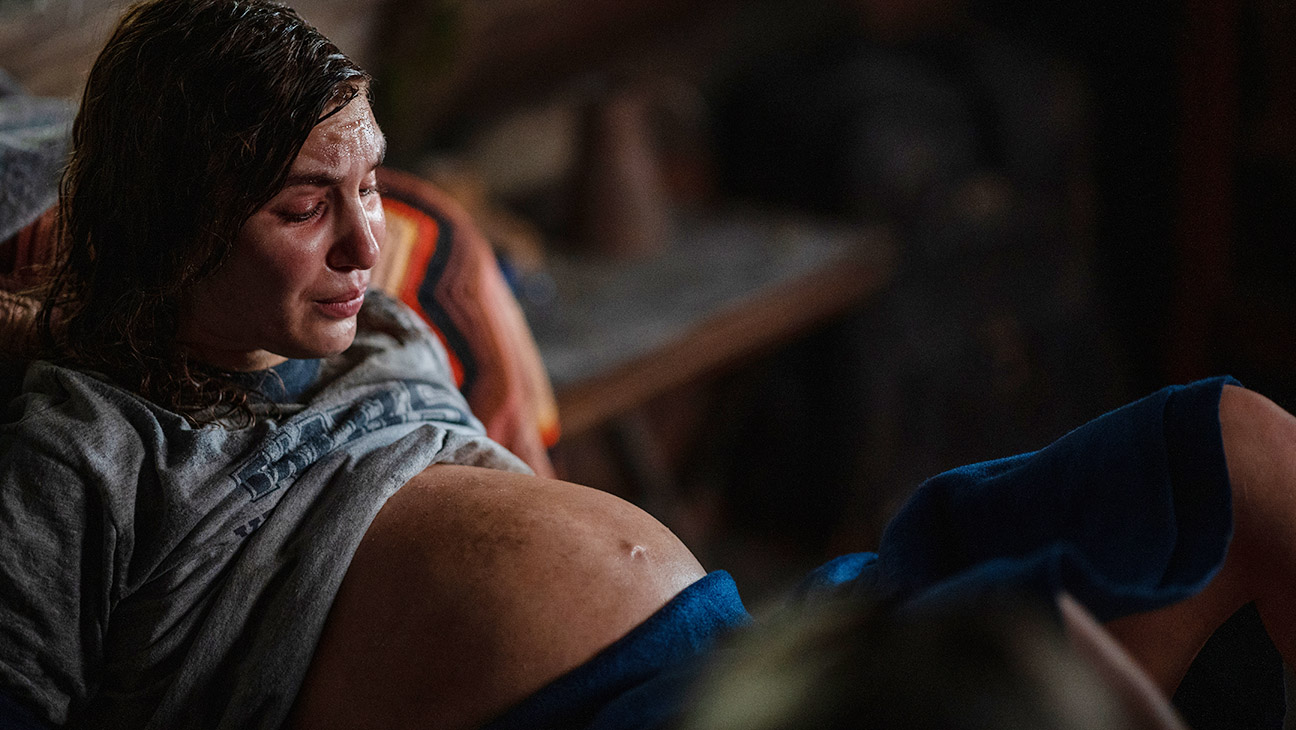
Kailey Schwerman/SHOWTIME
Yellowjackets plays with the debate of faith vs. pragmatism, and this episode really confronts that. Despite Lottie’s power (both among the group and possibly spiritually), the baby doesn’t survive. Co-creator Bart Nickerson told me previously that if you’re going to tackle faith, you have to show both when faith shows up and when it doesn’t. What did you talk about with the writers with that overall theme?
I love the way Bart described it. For me, as someone working with Sophie during those performances, it was about developing that sense of alienation. Even Taissa, who is her ride or die, is interacting with Van holding the amulet and looking at Lottie. Everyone around Shauna is grasping for that spiritual anchor, or that spiritual lifeline that will get through this terrifying experience, which is having a baby in the wilderness when you’re starving. But for Sophie, it’s all real. “My body is in pain, I’m bleeding everywhere.” You can’t be more grounded in the realness and the messiness and the pain of life than when you’re going through childbirth, right? I’ve done it, I know! So it brings that divide into such stark relief. Holding onto an amulet ain’t gonna do anything with these contractions. It contributes to that deep, deep alienation that she feels.
Of course in the dream timeline, she’s desperately alienated, because it’s only she who could feed the baby despite Lottie’s weird attempt to do so. And she also in that dream timeline really loses trust in all her compatriots, even Natalie and Tai, and she starts to doubt them. So it’s the experience of childbirth being the polar opposite to anything otherworldly. It is so grounded. And so it’s a way of expressing the deep alienation of that character.
Halfway through, this episode begins its devastating magic trick. We begin to watch what we later understand to be a dream. Can you talk about this treatment and why you all went this route?
Definitely it was my hope that the audience would be kept guessing. And there are some Easter eggs in there that I think if you watch the episode 10 times, you will be able to see that we were signaling this was a different plane of reality. There were certain things I changed with the cinematography and set design before the dream-nightmare timeline. But it was definitely subtle, so you are with Shauna on that journey. You’re not ahead of her; you’re with her. You didn’t have any knowledge ahead of her, you’re right alongside her going through this. Then there’s the moment where she blacks out and opens her eyes, and Misty hands her a baby. And that signal is the beginning of this other plane of reality that then is abruptly ended when she has her Rosemary’s Baby moment in that nightmare and wakes up. But of course, the reality of the baby not making it is harder to take than even that cannibalistic nightmare.
There were hints the labor was not going well. There is a ton of blood; the placenta comes out first. How much did you want to cue the audience in early that things weren’t right?
You know that a placenta coming out basically means it’s not good. But I actually didn’t know what the chances of survival were. I think most people don’t know the ins and outs of labor signs. Quite often, the mother dies if a placenta is delivered like that. There’s so much at stake in that moment. Shauna survives, thank God.

Kailey Schwerman/SHOWTIME
The creators clarified early on that the baby was not going to be eaten (like in Shauna’s nightmare). Can you talk about the writers’ decision on the baby’s fate — was it too unrealistic for a baby to survive with a starving mother in the wilderness and under these circumstances?
It would be a Lottie-level miracle for both baby and mother to get through a starvation childbirth. I think that tracks with the two planes that the show works on, which is as you were saying Bart was saying, the pragmatic vs. the faith, and the pragmatism won out here. And I think it really showed the divide in the adolescent characters, the schism amongst them. So it worked on many levels.
But what’s also really interesting, and to me one of my favorite moments, is Sophie’s incredible work at the end of the episode, where she wakes up and is in denial that this could have happened. I still have chills thinking about her performance. When I called “cut” on that last take, or I knew we had it, and I went over to Sophie and gave her a hug, I looked around and the other cast was crying. The actors around us. Because Sophie had just given so much and that grief she felt, that loss, was so palpable that all of us were just kind of beside ourselves. It was a pretty special moment as a director to be working with them at that moment.
How many takes did she do for that scene, of waking up from the dream/nightmare?
I would have to look back. But we were pretty good in conserving Sophie’s energy and getting it right. One thing that we did, which was so useful and it really doesn’t happen on every show, was that we rehearsed. We spent time rehearsing in the cabin. As you know in this episode, there’s not a lot of relief from the cabin. It’s pretty claustrophobic. There’s no outdoor hunting or eating scenes, it’s all in the cabin because they’re snowed in, and also because they’re dealing with Shauna.
The blocking for this episode had to be really alive and really well-choreographed. We were able to do both rehearsals for performance on the set as well as rehearsals with the cinematographers so that we could really have muscle memory of what we could do so that when Sophie was ready, we would know exactly where we were going and what we were doing and where we were moving. There wasn’t going to be a lot of faulty takes. So, that prep time really paid off. I don’t know if it was three or four takes, but it wasn’t a ton because we were so prepared.

Kailey Schwerman/SHOWTIME
When you come in to direct one episode like this, how do you gain that kind of a trust with Sophie?
She’s a phenomenal actor, and she’s so committed to her craft. As you may know, she wears contact lenses to match her eyes to Melanie’s. She has blue eyes. It’s really hard to cry convincingly wearing contacts. And she didn’t want to rely on tear sticks, she wanted to be fully in it and have that full body experience. So we talked about removing her lenses for her big moments in this episode and that her eyes would be colored in post. That’s something we had to run through the powers that be; it’s more expensive, because her eyes are always moving. So that was one way that I think we allowed Sophie to kind of do her best work.
I had sent her the Handmaid’s Tale’s birth scene — where Lizzie Moss’ character June is also without any medical intervention, she’s in an abandoned mansion in Gilead — and other shows, too. Even the birth scene in Juno, because even though it has an edge of comedy to it, it was a pretty great depiction of the pacing of contractions. And I also sent Sophie medical videos so there could be a really convincing and really realistic depiction of that pain, how it comes in waves; how exhausted you feel, how there are these intermittent moments. We just wanted it to feel really relatable to anyone who has given birth.
You spoke about the young-adult Shauna connection and working with Melanie, and you see in this episode more clearly how her trauma resurfaces. In adult Shauna’s monologue at the police station, she confesses she had her daughter, Callie (Sarah Desjardins), out of guilt and shame. How truthful was she there?
I think you said it really well. We’re revealing the pain and the trauma of this pivotal moment of her experience in the wilderness with her admission and peeling back the curtain on: Why did she marry Jeff? How did this all come to happen? She clearly has such a strained relationship with her daughter, and I think it’s one of the moments where we have real insight into how conflicted her feelings are.
And I think those feelings are also deeply relatable. Being the age that Melanie’s character is, being at that point in your life is a time where a lot of us question how fulfilling these choices are that we’ve made. So she’s both channeling something there that’s deeply relatable about choices one has made in middle age, as well as referencing the trauma and terrible guilt of feeling responsible for Jackie’s death, and therefore being with Jeff, and also the loss of the child.
With Melanie in that interrogation room, it was about allowing her to travel to a place where she could be totally alone with her thoughts and go through this thing that was totally believable, even though she’s giving [the cop] this information that she should never be giving him. But because Melanie nails it and goes so deep into herself, you can believe that she almost feels alone in the room and is unburdening herself of these questions in one of the only places that she can. She can’t say this to her husband. She can’t say this to her daughter. Shauna really needs a therapist, but I think money is tight in the family. Her relationships with her friends are… super weird! So this is the space she can go into and truly speak her truth. So it’s a pretty big moment for her too.

Paramount+
There’s a recent trend on TV of showing more graphic childbirth scenes; House of the Dragon and Dead Ringers also come to mind. These episodes were written before, but now that they are coming out after the Supreme Court’s Dobbs decision of summer 2022. Do you think audiences are more receptive; do you think it will be as shocking?
Look, I think as time progresses, people are less and less precious. We just had a Yellowjackets scene of cannibalism — so, childbirth is nothing! Showing the placenta, which I thought props and special effects did an incredible job…
What was the placenta made out of, by the way?
I know what we put all over the baby was jam, for the bloody parts. You obviously have to put a lot of care into what you can put on a baby. I’m not sure what they made the placenta out of. But about Dobbs, look, women’s reproductive health is always something that has been mystified and I think demystifying it and understanding the basic medical functions that it serves is important. Look, if it was about men, you’d be able to go get an abortion at an ATM, right? It’s the things people don’t talk about. Now there’s a move to talk more about menopause. It’s generally women’s bodies that are cloaked in mystery, so I think the more we can normalize and talk about it, the better.
I spoke to the younger cast about the Jackie cannibalism scene, and a lot of them had physical reactions filming. In your episode, the cannibalism scene with the baby is heightened, and there’s a different emotion on everyone’s face as you pan around, ranging from desperation to regret to blood-thirst. Can you talk about what it was like to film?
I’m so glad that you observed that. I showed the cast Rosemary’s Baby, you might not be surprised. We talked about it and how it would be these quick close-ups, which would show these intensely exaggerated reactions and calibrated that. It’s probably different than the Jackie eating scene, which I wasn’t present for so I’m just guessing, but doing that work with Sophie in the cabin and all the loss was so exhausting and deep, that when we got to the baby, even though that’s super dark, it was almost a relief because they read the script, they all knew it was part of a nightmare and part of an unreality. So in some ways, the reality of episode six is so dark that I bet it felt different to them than to eating Jackie, which was certainly part of their grounded, pragmatic timeline.
The baby wasn’t involved with that scene, but was in others. How was filming with a baby?
We should talk about Sophie for that because filming with a baby is really hard. We had great babies, these babies were really easy to work with. But you could be doing your most favorite take and then all of a sudden, the baby screams when they’re not supposed to be screaming. It’s certainly a big challenge. Sophie managed that gorgeously. But yes — when we were shooting the baby eating scene, there was no need for a live baby. That was all props!

Kailey Schwerman/SHOWTIME
Something else that you dove further into was Coach Ben (Steven Krueger) and his internal journey. What were you trying to accomplish with him?
Ben is on a decline, right? He doesn’t eat Jackie. He’s getting more and more dizzy and out of it. He’s losing connection with even those he had felt more connected to over the course of the season. I don’t know how apparent it is to viewers, but the whole set for his flashback with his boyfriend has changed. Which is a reference to his emotional state and how warped his mind is becoming. So we work not just with performance for Ben, but also, similarly to Sophie’s timeline, with the set and cinematography to augment how altered his state was becoming. Look at the set and compare it to the last time you saw him in that apartment.
Sounds like a fun conversation for Reddit threads.
There are Easter eggs in there that if you pay close attention to the cinematography and the set, we do give some wink to which timelines are in the “real world” of the Yellowjackets versus the nightmarish one. It will be great for people to dig in and see if they can parse those.
Beyond Yellowjackets, Handmaid’s Tale has you coming back for its upcoming final season and you’re also doing Ellen Pompeo’s new series on Hulu. What can you talk about?
I’m excited about both of those projects. Working with Elisabeth Moss was a transformative experience for me as a director and being on the Handmaid’s Tale set. I love that team and that crew and that cast and the writers and Lizzie so much. I’m just so glad that I’ll be able to reunite with them as they put to bed this extraordinary, extraordinary cultural phenom which was that show. And then I’m super excited to work with Ellen and craft a new character for her after we’ve all loved her so much as Meredith Grey. That’s just a delicious challenge, and the show is going to be great.
***
Interview edited for length and clarity.
Yellowjackets streams new episodes weekly on Fridays and airs on cable Sundays at 9 p.m. on Showtime. Keep up with THR‘s Yellowjackets season two coverage and interviews.
‘Yellowjackets’ Finally Answers the Question Around Shauna’s Baby

